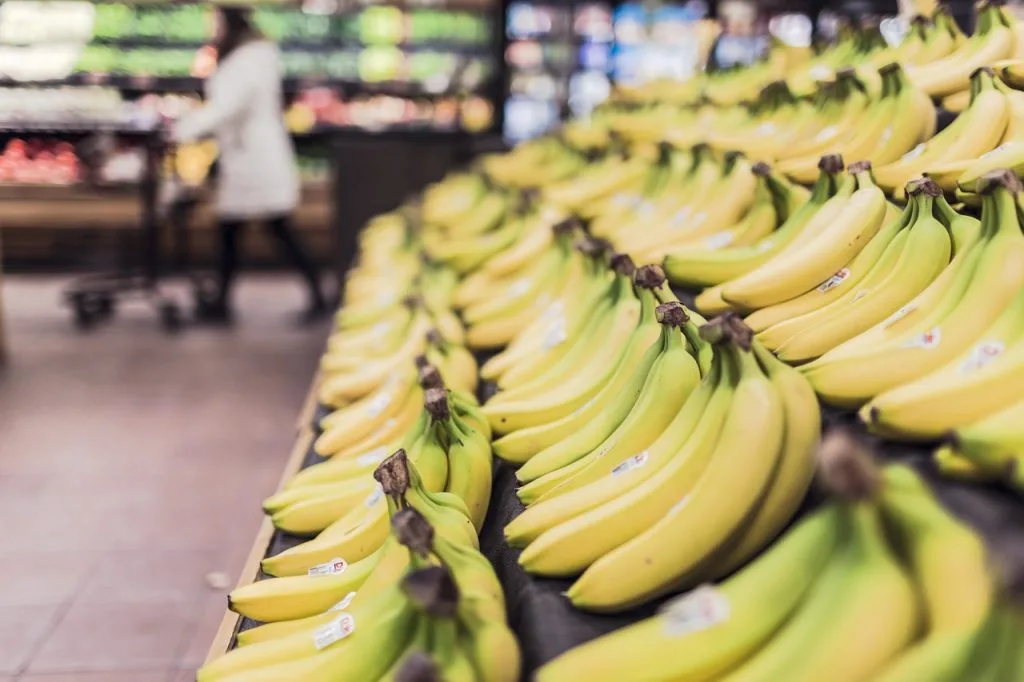Foods labeled "organic" on their packaging are believed to have many health benefits that conventional foods lack. We decided to check if this is true.
Stores, specializing in similar products, write about it as “truly pure, natural and healthy”, as well as more safe. Specialized portals about nutrition and cooking declarewhat is food contains 50% more vitamins, minerals and nutrients. Similar opinion adheres to and an organization called the Organic Farming Union. They write that organic products are healthier and tastier glossy magazines. Kirov branch of Rospotrebnadzor believes organic products are “the key to healthy eating and safety.”
Organic food are produced in compliance with certain rules, as close as possible to the method of growing plants and animals that our ancestors used for centuries. So, in order for fruits or vegetables to receive organic status in Russia, mineral nitrogen fertilizers, synthetic pesticides and hydroponic technology cannot be used when growing them (method growing plants without soil, when the roots are lowered into a solution from which they receive all the necessary nutrients), there are also certain requirements for the soil. In animal husbandry, the restrictions are even stricter - the origin of the animal, its conditions of detention and nutrition are regulated, the use of antibiotics for preventive purposes, hormones and other drugs that stimulate growth are prohibited. Genetic engineering cannot be used in the production of organic products. At the same time, “organic” - not a synonym “natural” (that is, without dyes, flavor enhancers, etc.), because in this case we are talking specifically about the production method, and not about the composition.
The popularity of organic products is growing around the world. Thus, in 2021, sales of such vegetables and fruits in the USA for the first time exceeded sales of agricultural products grown in the usual way, both in terms of revenue and volume. This is despite the fact that due to the more complex production process, such products usually cost significantly more.
There is no unified certification system for organic products in the world; different countries have their own (although the requirements are approximately the same everywhere): in Russia - GOST 56508, in the USA - USDA Organic, in Japan - JAS etc. There is a single regulations production of organic products for the European Union countries. However, in some European countries, for example in Germany And France, there are certification systems that may impose additional requirements.

Often on the packaging of organic products, next to a designation like organic, you can see the inscription “non-GMO”. According to the regulations of different countries, such products indeed cannot be genetically modified. However, "Verified" already wrote: There is no evidence that GMOs pose any harm to human health. WHO notesthat in countries where the use of GMO products is approved, their negative impact on public health has not been recorded. Experts conducted review in total, more than 3,000 scientific studies on this topic also found no evidence that GMO products are dangerous. So in this sense, organic products do not have any advantages over conventional ones.
Organic vegetables and fruits contain higher amounts of antioxidants. Thus, in 2014, an international group of scientists conducted meta-analysis existing studies and found that the amount of different types of antioxidants in organic foods was from 19% to 69% higher (depending on the specific type of these substances). Antioxidants, in turn, are really useful: they protect body from free radicals — oxygen atoms in which one or more electrons are without a pair due to exposure to unfavorable conditions or simply metabolism. In this case, such atoms in our cells react with others, trying to “regain” the missing particle. A large number of them can bring to the so-called oxidative stress and, as a result, damage to the body’s cells.
Regarding the nutritional value of organic products, in 2012, experts from Stanford University (USA) held systematic review of existing research and found no convincing evidence that such products are significantly more nutritious. In 2017, an international group of scientists did similar review. It turned out that although organic dairy products and meat contained more omega-3 fatty acids, the difference was so small that it did not appear to have any significant nutritional significance.
The same review also noted that the difference in levels of the toxic metal cadmium in organic and conventional foods is minimal. But in review, published by researchers from different countries in 2014, the results are somewhat different: in organic products there was an average of 48% less of this metal. Because cadmium can accumulate in the body, it's best to keep levels of cadmium in foods as low as possible, they emphasize, even though levels in regular foods were also within acceptable limits.

Dietitian Katie McManus, director of the Department of Nutrition at Harvard's Brigham and Women's Hospital, doesn't see the particular benefits of organic products over conventional ones and argues that there is not yet enough evidence to indicate their greater health benefits. And given that such products are much more expensive, she does not consider it necessary to recommend them to her patients. To similar conclusion Pediatricians from UC David Children's Hospital also came. They note that organic fruits and vegetables have the benefit of not containing traces of pesticides, which some have suggested may contribute to cancer, but are otherwise no different from conventional ones. However, the amount of pesticide residues can be reduced and another way - by thoroughly washing fruits and vegetables and, if possible, peeling them.
In 2018, French scientists published their results research, based on a survey of more than 68,000 French people about their diet. They systematized information on the frequency of consumption of organic products and data on the health of participants and came to the conclusion that the higher the level of organic consumption, the lower the risk of developing cancer. However, this is a correlational study and does not reveal cause-and-effect relationships. Therefore, we cannot talk about the direct effect of organic products on reducing the risk of cancer, since associated factors were not taken into account. For example, people who are willing to spend money on noticeably more expensive organic products generally pay more attention pay their health and proper nutrition, so it is difficult to judge how big a role this approach played in building a diet.
In 2010, scientists from the Louis Bolk Institute (Netherlands) conducted experiment over the chickens. Different groups of birds were given either organic or conventional food, and after 13 weeks they were killed and physiological parameters were compared. Some of the chicks were also injected during life drugthat provokes an immune response to test the immune response. It turned out that birds who ate conventional food gained weight faster, and those who received organic food had stronger immunity.
As for people, establishing a relationship is somewhat more difficult. Review A 2022 study by scientists from the Czech Republic, India and the United States showed that eating organic foods led to an 11% reduction in the risk of obesity. French study 2018 also found an inverse relationship between the level of organic food consumption and the risk of metabolic syndrome (a metabolic disorder that includes obesity, type II diabetes and other disorders). In the same year, researchers from the USA conducted a systematic review and found a lower incidence of diabetes among fans of organic products. But as we've said before, it's possible that people who buy these products are simply living healthier lifestyles, and the reduced risk of disease is associated with this.

American Academy of Pediatrics believesthat more research is needed to identify the relationship between dietary exposure to pesticides and individual health outcomes. American Heart Association advises include a variety of fruits and vegetables in your diet, regardless of how they are produced, as they are all equally healthy. American Institute for Cancer Research doesn't see direct relationship between the consumption of organic foods and a reduced risk of developing cancer and also simply advises eating as many different fruits and vegetables as possible.
Organic farming is considered to be less harmful to the environment, but it is also controversial issue. Due to the elimination of certain fertilizers and strict soil management rules, organic production brings, according to some estimates, 25% less yield. This means that to obtain the same amount of food, it is necessary to use more land, which ultimately also negatively affects the environment. At the same time, conventional farming does contribute to environmental pollution with pesticides and nitrogen released from fertilizers. So in both cases some compromises have to be made.
Thus, to date there is no convincing evidence that organic products are healthier than conventional ones. Research has shown that there is some correlation between their consumption and a reduced risk of developing diseases such as obesity, cancer and diabetes. However, it's worth considering that people who choose organic foods tend to have healthier diets overall, so it's difficult to establish a cause-and-effect relationship. The only proven benefit of organic foods is higher levels of antioxidants. In addition, they do not contain any residual traces of pesticides, but even in conventional products their levels can be minimized by thoroughly washing and, if possible, peeling the fruit. The greater environmental friendliness of organic production is also a controversial issue.
This is not accurate
Read on the topic:
- Is it true that food additives are dangerous to health?
- Is it true that eating soy is harmful to health?
- Is it true that monosodium glutamate is harmful to health?
- Is it true that eating GMO foods can change your genetic code?
If you find a spelling or grammatical error, please let us know by highlighting the error text and clicking Ctrl+Enter.






